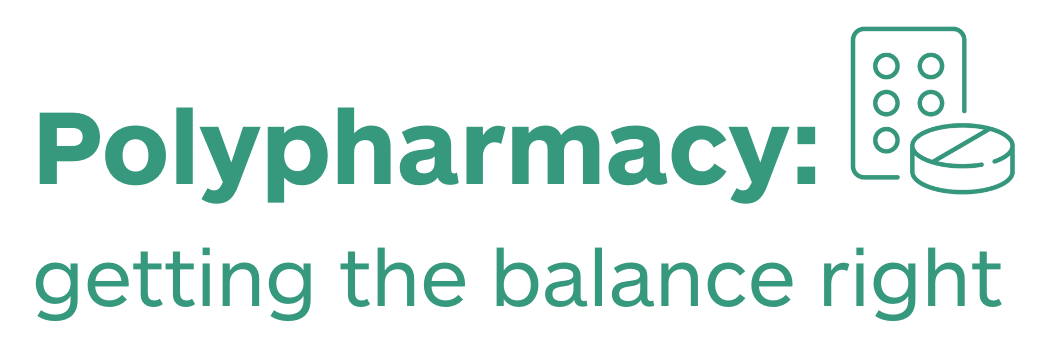|
|
As part of the AHSN Polypharmacy Programme: getting the balance right Health Innovation North West Coast are supporting health care professionals to identify patients at potential risk from polypharmacy and to support better conversations about medicines. |
An introduction to the AHSN Network Polypharmacy programme from West of England AHSN on Vimeo.
What is the problem we’re addressing?
We dispense over 1 billion prescription items per year in primary care in England.
Polypharmacy simply means many medicines. As more people live longer with multiple long-term conditions, the number of medicines they often take increases. This can have a significant burden on the person managing and trying to adhere to multiple medicines regimes and can also be harmful.
Studies have shown that that over 50% of older people are prescribed a medicine with more harm than benefit, leading to avoidable morbidity, hospitalisation and mortality. In England in February 2022 there were 876,317 people on 10 or more medicines and 349,653 were 75 or over. A person taking 10 or more medicines is 300% more likely to be admitted to hospital. Polypharmacy adds preventable cost to the healthcare system and diminishes quality of care for the patient. The most deprived areas tend to have the most issues around polypharmacy, also making this a health inequality issue.
Most of the harm from polypharmacy is preventable.
The National Overprescribing Review (NOR) Good for you, good for us, good for everybody (September 2021) led by Dr Keith Ridge, former Chief Pharmaceutical Officer for England, found that overprescribing is a serious problem in health systems internationally that has grown dramatically over the last 25 years. It identifies two main causes: systemic and cultural. The response to the NOR report is now an NHS England programme.
The NOR sets out 20 cross-system recommendations to be led by a range of NHS and affiliate organisations - the Polypharmacy programme directly supports the delivery, and potential acceleration, of recommendations 8, 16, 17 and 18 into operational practice.
What are the outcomes we are trying to achieve?
Successful delivery of the programme within the North West Coast will result in:
- A regional Polypharmacy Community of Practice, with members working to address the system-wide challenges of problematic polypharmacy in our geography.
- Routine use of the NHSBSA Polypharmacy Prescribing Comparators to identify and prioritise patients for a shared decision-making Structured Medication Review.
- Increased confidence amongst the region’s primary care prescribing workforce to safely stop medicines identified to be inappropriate or unnecessary.
- A change in patient expectations - to anticipate having a shared decision-making conversation about their medicines regularly, especially as they get older.
- A contribution to the evidence base around how to help patients to feel more empowered to open up about their medicines issues.
- A contribution to the evidence base around how to tackle problematic polypharmacy.
How will we do this?
|
The programme is based across three pillars which are supported by Health Innovation North West Coast Community of Practice: |
|
|
|
Pillar 1: Population Health ManagementUsing data (NHSBSA polypharmacy prescribing comparators) to understand population health risks and support prioritisation of patients for a structured medication review. |
|
|
Pillar 2: Education & TrainingInvesting in clinical leaders – AHSN Polypharmacy Clinical Leads and expert Polypharmacy Trainers and delivery of local Polypharmacy Action Learning Sets (ALSs) to upskill the primary care workforce to be more confident about stopping unnecessary medicines. The ALS model was originally developed and piloted by Wessex AHSN and supported by Health Education England (HEE). |
|
|
Pillar 3: Public Behaviour ChangeLocal testing and evaluation of public-facing initiatives to change public perceptions of prescribing and encourage patients to open up about medicine concerns and expectations. |
Polypharmacy: understanding the data webinar recording
The national Polypharmacy programme is establishing communities of practice around the country to identify local priorities and encourage routine use of the NHSBSA Polypharmacy Comparators to assess patients in high-risk groups. The NHSBSA Polypharmacy Prescribing Comparators tool is available to all GPs and pharmacists. Watch a recording of the April 2022 webinar.
Additional resources and information are available from the AHSN Network’s Polypharmacy webpage.
Contact
If you have any questions about our local Polypharmacy programme, please contact Gemma Byrne.





